From Accra to Kumasi Stay Informed with Essential news in ghana Updates Shaping Your Future.
- From Accra to Kumasi: Stay Informed with Essential news in ghana Updates Shaping Your Future.
- The Political Landscape of Ghana
- Electoral Processes and Recent Elections
- Challenges Facing Ghana’s Democracy
- Economic Developments and Opportunities
- Investment Climate and Foreign Direct Investment
- Key Economic Indicators and Future Outlook
- Social Issues and Development Challenges
- Healthcare System and Public Health
- Education and Skills Development
From Accra to Kumasi: Stay Informed with Essential news in ghana Updates Shaping Your Future.
Staying abreast of current events is crucial in today’s rapidly changing world, and for those interested in the African continent, understanding news in ghana provides a vital window into the political, economic, and social developments shaping the nation and the region. Ghana, a West African nation known for its democratic stability and growing economy, plays a significant role in regional affairs and increasingly, on the global stage. From policy changes to cultural shifts, keeping informed is essential for anyone with business interests, academic pursuits, or a general interest in international affairs. This article delves into the current landscape of information dissemination in Ghana, exploring key sources and providing context for understanding the complexities of the current situation.
The flow of information is continually evolving, impacted by social media, digital journalism, and traditional media outlets. Access to reliable and unbiased reporting is more important than ever, allowing individuals and organizations to make informed decisions, fostering greater accountability and transparency within civil society. Understanding these trends is a cornerstone to navigation the current landscape and provides the grounds for making sensible choices.
The Political Landscape of Ghana
Ghana’s political scene is dynamic, characterized by a multi-party system dominated by the New Patriotic Party (NPP) and the National Democratic Congress (NDC). Recent years have seen a shift in political discourse, with increasing scrutiny of government policies and a growing demand for greater accountability. The current government, led by President Akufo-Addo, has focused on economic development and infrastructural projects, but it has also faced challenges relating to corruption and social inequality. Parliament plays a key role, forming the main arena for debate. Understanding the nuances of these political ideologies is critical for deciphering the context of current events.
| New Patriotic Party (NPP) | President Akufo-Addo | Economic Liberalization, Free Education, Infrastructure Development |
| National Democratic Congress (NDC) | John Dramani Mahama | Social Welfare Programs, Infrastructure Investment, Job Creation |
| Convention People’s Party (CPP) | Nana Yaa Jantua | Pan-Africanism, Social Justice, Economic Independence |
Electoral Processes and Recent Elections
Ghana has a reputation for peaceful transitions of power, and its electoral processes are generally considered to be fair and transparent, though they are not without their challenges. The 2020 presidential election was highly contested, resulting in a narrow victory for President Akufo-Addo. The election highlighted the need for ongoing reforms to enhance the credibility and inclusivity of the electoral system. The effectiveness of the Electoral Commission, a body responsible for organizing and overseeing elections, has been a topic of considerable public debate. Maintaining public trust in the integrity of the electoral process is essential for preserving Ghana’s democratic values.
The use of technology in elections is also a growing trend, with advancements being made in biometric voter registration and electronic transmission of results. However, challenges remain in ensuring equitable access to technology across the country and safeguarding against cyber threats. Addressing these issues is crucial for ensuring the legitimacy and acceptance of election outcomes. The Electoral Commission is striving for more methods of digital record keeping and instant collation of results to reduce disputes as they happen.
Challenges Facing Ghana’s Democracy
Despite its democratic successes, Ghana faces several challenges threatening its democratic stability. Corruption remains a significant issue, eroding public trust in government institutions and hindering economic development. The lack of transparency in public procurement and the pervasive influence of vested interests continue to impede progress in this area. Furthermore, issues of social inequality and regional disparities fuel tensions and create opportunities for political manipulation. Strengthening institutions that promote accountability, protecting press freedom, and fostering inclusive governance are crucial to addressing these issues. These hurdles must be removed in order for a fairer society to etablish itself.
Another pertinent challenge is the rise of disinformation and fake news in ghana, particularly during election periods. The proliferation of social media platforms has made it easier for malicious actors to spread false narratives and manipulate public opinion. Combating disinformation requires a multi-faceted approach, including media literacy education, fact-checking initiatives, and stronger regulation of online content. Protecting the integrity of Ghana’s democratic processes depends on constructing a more informed and discerning citizenry.
Economic Developments and Opportunities
Ghana’s economy is primarily driven by agriculture, natural resources (particularly gold, cocoa, and oil), and services. Recent economic growth has been robust, propelled by increased foreign investment and rising commodity prices. However, Ghana also faces economic vulnerabilities, including high levels of public debt, inflation, and dependence on commodity exports. Diversifying the economy, promoting value-added processing of raw materials, and fostering a more favorable business environment are essential for ensuring sustainable economic development. Diversification is seen as the main driver to propel more sustained growth.
- Cocoa Production: Ghana remains one of the world’s leading cocoa producers.
- Gold Mining: The gold mining industry is a major contributor to Ghana’s export earnings.
- Oil and Gas: The discovery of oil and gas reserves has boosted Ghana’s economy.
- Tourism: Ghana’s rich culture and natural beauty are attracting a growing number of tourists.
Investment Climate and Foreign Direct Investment
Ghana is actively seeking to attract foreign direct investment (FDI) to support its economic development goals. The government has implemented a range of policies aimed at improving the investment climate, including tax incentives, streamlined regulations, and protection of investor rights. However, challenges remain, such as bureaucratic hurdles, infrastructure deficits, and corruption. Addressing these issues is crucial for attracting more FDI and realizing Ghana’s economic potential. Opportunities exist in sectors such as renewable energy, agribusiness, and infrastructure development.
The implementation of the African Continental Free Trade Area (AfCFTA) presents significant opportunities for Ghana to expand its trade and investment links with other African countries. The AfCFTA aims to create a single market for goods and services across the continent, facilitating cross-border trade and investment. Ghana is well-positioned to benefit from this initiative, given its strategic location, relatively stable political environment, and established infrastructure. Utilizing this new partnership will propel the country’s economic growth into the future.
Key Economic Indicators and Future Outlook
Monitoring key economic indicators is crucial for assessing Ghana’s economic performance and identifying potential risks and opportunities. The Gross Domestic Product (GDP) growth rate, inflation rate, exchange rate, and balance of payments are all important indicators to track. Recent economic data suggests that Ghana’s economy is recovering from the impact of the COVID-19 pandemic. However, global economic uncertainties, such as rising energy prices and supply chain disruptions, pose risks to the outlook. Careful macroeconomic management, prudent fiscal policies, and structural reforms are essential for sustaining economic growth and improving living standards. The ability to mitigate these challenges will pave the way for a stronger Ghana economy.
Social Issues and Development Challenges
Ghana faces a number of social development challenges, including poverty, inequality, limited access to education and healthcare, and environmental degradation. Addressing these challenges requires a concerted effort from government, civil society, and the private sector. Investing in education, healthcare, and social protection programs is essential for improving human development outcomes and reducing social disparities. Promoting inclusive growth, empowering marginalized communities, and strengthening social safety nets are also crucial. Continued investment is required to help those least able to deal with disruptions.
- Education: Improving access to quality education, particularly in rural areas, is a priority.
- Healthcare: Expanding healthcare coverage and strengthening the health care system are essential.
- Poverty Reduction: Implementing programs to address poverty and income inequality.
- Environmental Sustainability: Promoting sustainable environmental practices and addressing climate change.
Healthcare System and Public Health
Ghana’s healthcare system is a mix of public and private providers. Access to healthcare remains a challenge in many parts of the country, particularly in rural areas. The National Health Insurance Scheme (NHIS) provides affordable healthcare coverage to a significant portion of the population but its financial sustainability is under threat. Strengthening the healthcare infrastructure, increasing the number of trained healthcare professionals, and improving the quality of healthcare services are critical priorities. Combating the spread of infectious diseases, such as malaria, tuberculosis, and HIV/AIDS, remains a major public health challenge. Investment in preventative care, health education, and disease surveillance is vital.
The recent global pandemic has highlighted the vulnerabilities of Ghana’s healthcare system and the need for greater preparedness. Investment in disease surveillance, isolation facilities, and testing capacity is crucial for preventing and controlling future outbreaks. The government is also working to strengthen the local pharmaceutical industry to reduce reliance on imported medicines. The country has increased collaboration with international organisations, like the WHO, to improve healthcare efficacy.
Education and Skills Development
Education is a fundamental right, and Ghana has made significant progress in expanding access to education over the past few decades. However, challenges remain, including overcrowded classrooms, inadequate resources, and disparities in educational opportunities. The government’s Free Senior High School policy has expanded access to secondary education. Improving the quality of education, enhancing teacher training, and promoting vocational and technical education are essential for preparing Ghanaians for the future job market. Investing in skills development and lifelong learning is vital for enhancing productivity and competitiveness. The government is advancing toward a more skills focused and modern approach to its education system.
The ability to stay informed about developments in Ghana is crucial for those interested in the progress of this vibrant African nation. By tracking political, economic, and social issues, individuals and organizations can better understand the challenges and opportunities facing Ghana and contribute to its continued growth and prosperity.

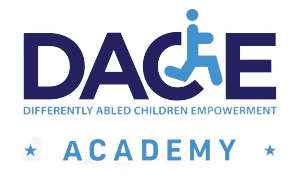
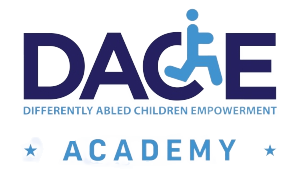
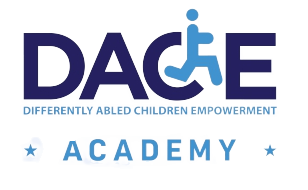
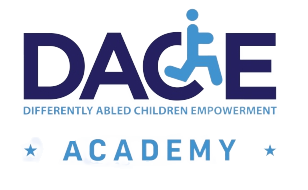
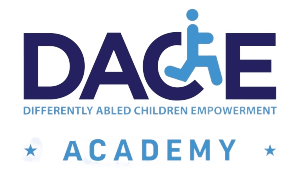
No Comments